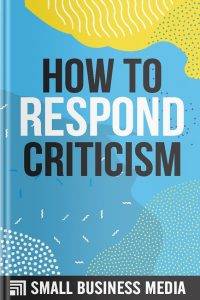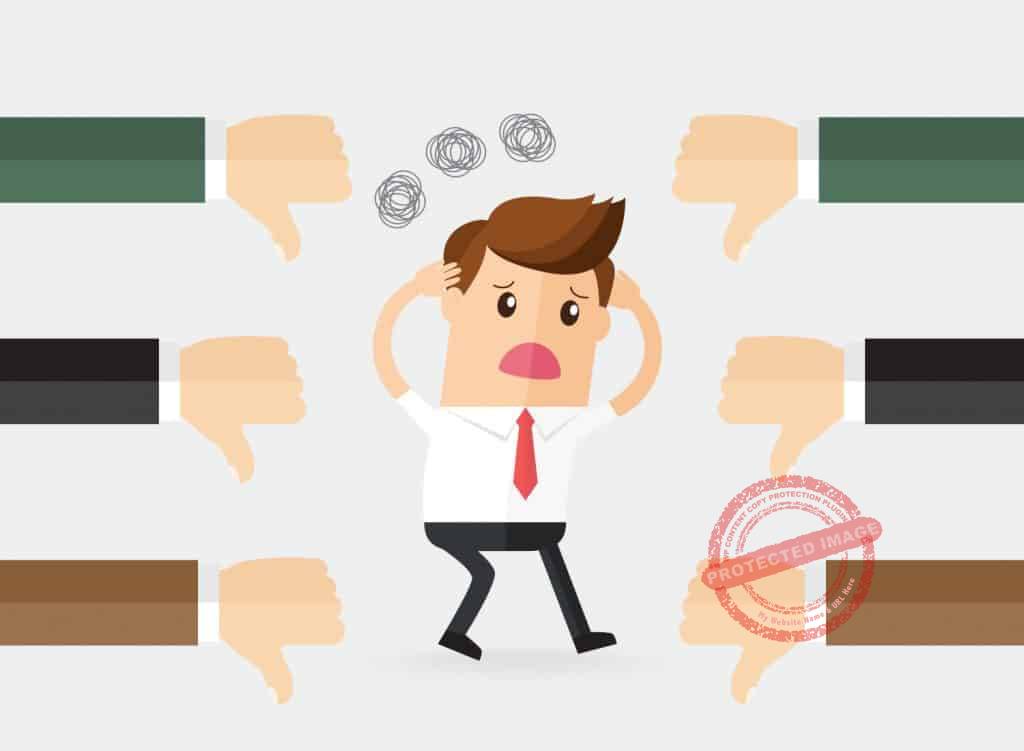Do you want to know how to respond to criticism the right way?
How do you respond to criticism in your business, professional, and personal life?
As much as you want to please everyone around you and make them happy, it’s impossible to do so.
You simply can’t please everyone.
As a business owner, you’ll face criticism from your clients.
As a leader, you’ll face criticisms about your leadership style and the tough decisions you make.
Even more as an employee, you’ll face criticism in your workplace either from your boss or your colleagues.
In your interpersonal relationship with people around you and society at large, you’ll also face criticism.
You see criticism would always be part of human experience.
Hence, it’s best to know how to deal with criticism in every area of your life by learning how to respond to criticism.
In this blog post, you’ll find out the best ways to respond to criticism.
How To Respond To Criticism

So what is criticism?
Criticism means judging someone’s character, behavior, or actions.
Criticism can also be defined as the act of giving a critical observation or remark about something or someone.
People who criticize are critics.
Bear in mind that criticism can be good and bad.
That is constructive criticism and destructive criticism.
Constructive Criticism
This is the act of giving positive specific and critical observations about someone’s actions or behavior.
Constructive criticism means giving positive feedback.
Constructive criticism is considered a good kind of criticism because it brings about the improvement of abilities.
Overall, constructive criticism is given as feedback on behavior to help people improve their abilities and become better at what they do.
Destructive Criticism
This kind of criticism does exactly the opposite of constructive criticism.
Destructive criticisms have negative effects.
This is because it is given with malicious intent to undermine and harm someone’s reputation and self-worth.
Even more, this kind of criticism ruins someone’s self-esteem and confidence.
Constructive and destructive criticisms are very different.
The difference is in the way it is spoken and the speaker’s intentions.
Constructive criticism is given in a more subtle manner and with positive intentions.
On the other hand, destructive criticism is delivered harshly and with negative intentions.
Overall, constructive and destructive both involve giving critical comments which directly influence the way a person feels about himself or herself.
Now you know what criticism is all about and the different types.
Let’s consider how to respond to criticism.
Simple And Effective Tips On How To Respond To Criticism

Everywhere you turn to, business, workplace, society and even on the internet you’re prone to facing criticism.
Hence, it’s best to know how to respond to criticisms either as a business owner, employee, or regular individual.
How you respond and react to criticisms will determine how it impacts you.
If you keep an open mind to constructive criticisms it can help you improve your abilities.
Consequently, making you a better person in whatever you do.
On the other hand, if you allow destructive criticism get to you, it can ruin your self-belief and self-image.
Thereby, making you feel bad about yourself and destroying your productivity overall as an individual.
Hence, here are some helpful tips on how to respond to criticisms either constructive or destructive criticisms.
Don’t Be Quick To Respond; Listen Before You Speak

When criticisms are thrown at you, the first thing that might come to your mind is to defend yourself.
This is because you feel that your reputation and integrity are at stake.
Hence, you feel the need to quickly respond to the critic.
This is not the right way to handle or respond to criticisms as it could lead to heated emotions and more negative feelings.
Rather than that, listen to the criticisms first before you speak.
This would help you identify the intention, perspective of the speaker, and the right response to give.
Consequently, helping you respond to criticism the right way.
Be Polite
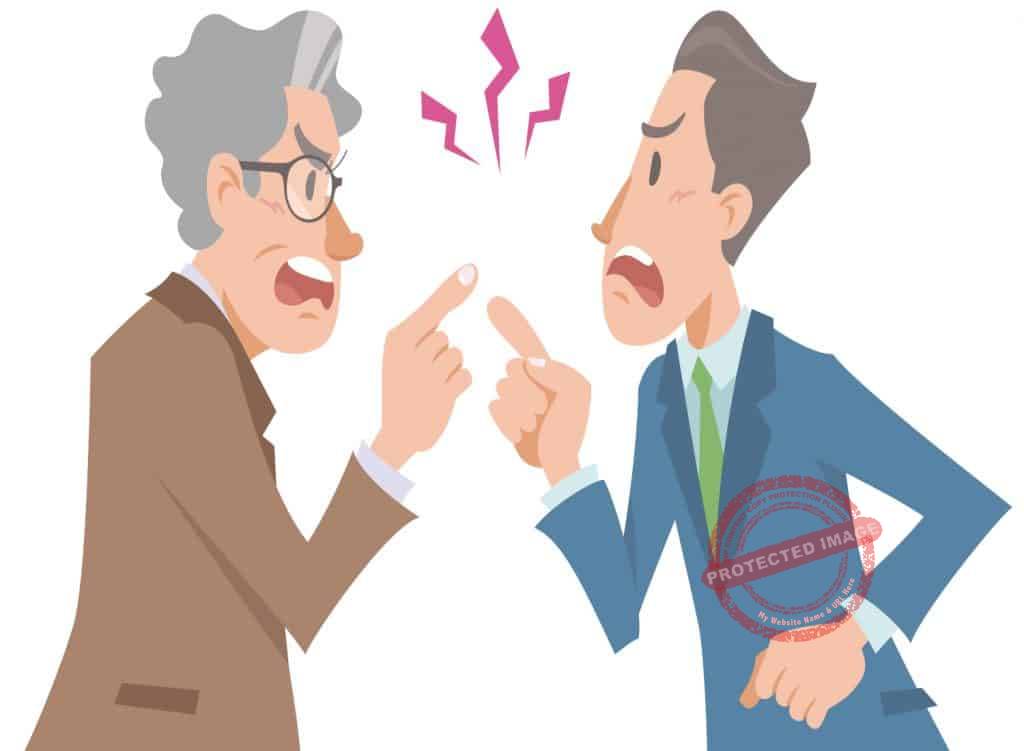
Another way to respond to criticism is to be polite.
Most times, the tone of the criticism could be attacking, mean-spirited, and generally rude.
As such you might be tempted to want to explode in anger and say hurtful words as well to get back at the critic.
There’s a saying that goes thus,” two wrongs cannot make a right”.
More so, when you say words you can’t take them back.
It doesn’t matter how rude or mean-spirited the criticism thrown at you might be.
Be the better person and respond gently and politely.
It might not be an easy thing to do.
Just take deep breaths, set aside your anger, and respond politely.
Consider The Facts In The Criticisms
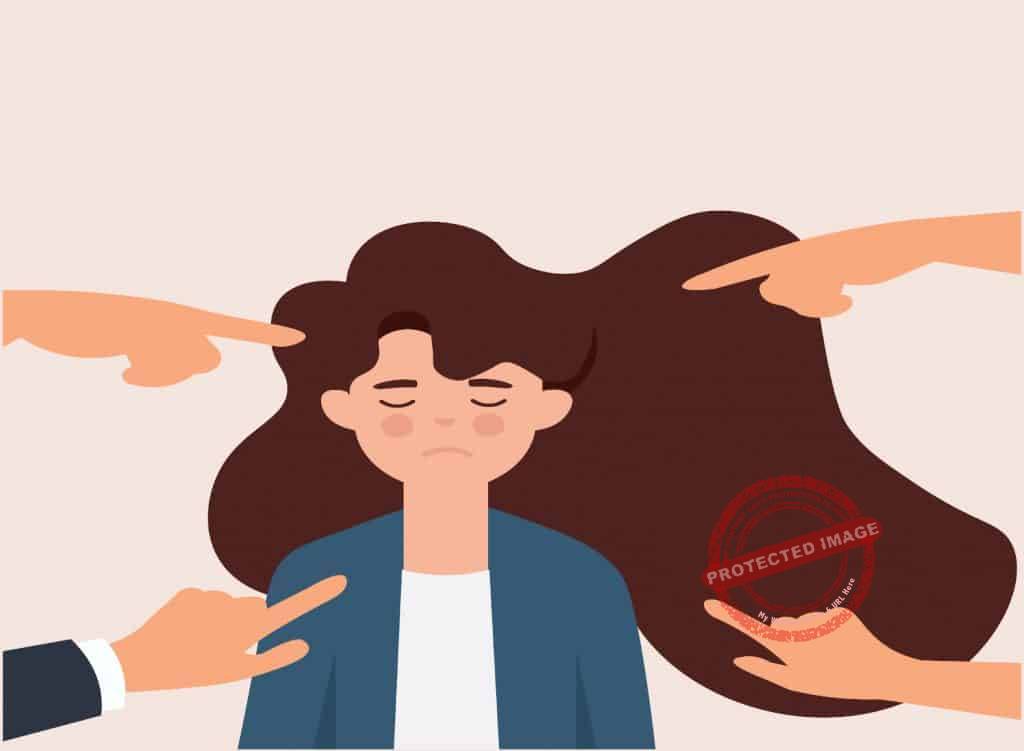
This is another important tip you should know about how to respond to criticisms.
Chances are that they’re some facts in the criticisms that are thrown at you.
Are people saying that you don’t show empathy as a leader in your organization?
As an employee do your colleagues or superiors complain of your lack of team-spirit?
You might get angry at these criticisms and seek ways to defend your reputations.
Don’t be engrossed in the negative emotions and negative words used to criticize you.
Rather than this, take time to consider the facts in the criticisms.
Honestly ask yourself certain questions to see if there’s any nugget of truth in what they must have said about you.
Also, share your concerns with other people around you.
Chances are that there might be or not be elements of truths in the criticisms.
If there are elements of truth in what the critics have said, then such criticisms can help you become a better person overall if you work on them.
Also, if there are no elements of truth you in what they’ve said but just malicious and mean-spirited comments, then you’ll know because you checked with yourself.
Consequently, helping you know how to handle and respond to criticisms.
Don’t Take Criticisms Too Personally

One of the reasons criticisms hurt most people is because they take it too personally, especially negative criticisms.
This could be because of an oversensitive nature.
Sometimes when people criticize you, it has nothing to do with you in particular.
Rather it has everything to do with them (those who criticize you).
It’s either because of their negative attitude, traits/behavior, or negative perception of you.
Hence, when people criticize you especially using destructive criticisms, don’t take it personally.
See if there is anything constructive you can pick from the criticisms and walk away from the rest of it.
Consider The Speaker’s Intentions
 Sometimes the reason you respond to criticisms wrongly is that you misunderstand the speaker’s intentions.
Sometimes the reason you respond to criticisms wrongly is that you misunderstand the speaker’s intentions.
Not all criticisms are malicious or done with the intent to diminish your self-worth and self-esteem.
It could be that the speaker spoke in a harsh tone.
This doesn’t mean that he/she criticized you with mean intentions.
Most times, criticisms are born out of the desire to see a person improve and become better at whatever they do.
So, it could be that the speaker’s intention is not to condemn you and make you feel bad about yourself in any way.
Rather it is to help you see the need to improve yourself.
Hence, when next you receive criticisms concerning your actions don’t focus on the tone of the speaker.
Rather than that, focus on the speaker’s intention.
Thereby, helping you respond to criticisms based on the intentions of the speaker.
Treat Criticisms As Feedback

This is another important tip to consider when thinking about how to respond to criticisms.
Not only praises and commendations serve as feedback on behavior.
Criticisms also serve as valuable feedback on behavior.
When you are criticized for something you did or didn’t do right you should see this as feedback on how to do things better.
Rather than see criticisms as an act to condemn you or destroy your reputation, see them as honest feedback on that can help you improve yourself and do things better.
When you have this mindset towards criticisms, you’ll handle criticisms positively.
Thereby, helping you respond to criticisms positively.
Acknowledge Your Faults And Take Responsibility

Another thing you should do when thinking of how to respond to criticisms is to take responsibility.
However, this is not always an easy thing to do as most people like to play the victim and avoid taking responsibility for their faults.
It takes a lot of courage to accept your faults and take responsibility for your actions when wrong.
When you’re criticized for something you did don’t be quick to play the victim and pity card.
Rather than that, recognize your faults and take responsibility for your actions.
More so apologize for what you did wrong rather than being defensive of your pride/ego.
Thus helping you respond to criticisms positively.
Show Gratitude For Constructive Criticisms

Another way to respond to criticisms is by showing gratitude.
This is true, especially for constructive criticisms.
When you receive constructive criticisms from people around you it’s because they have good intentions towards you.
They want to see you become a better person overall.
Even more, it’s because they understand your ambition and they want to help achieve your goals.
Hence the reason they provide valuable feedback to you in the form of constructive criticisms.
Rather than feel bad about the whole situation, accept constructive criticisms as feedback, and respond by showing gratitude.
Thank them for showing concern towards your growth as a person and for giving you valuable feedback that would help you achieve your goals.
Consequently, helping you react to constructive criticisms positively.
Take Action On Constructive Criticisms
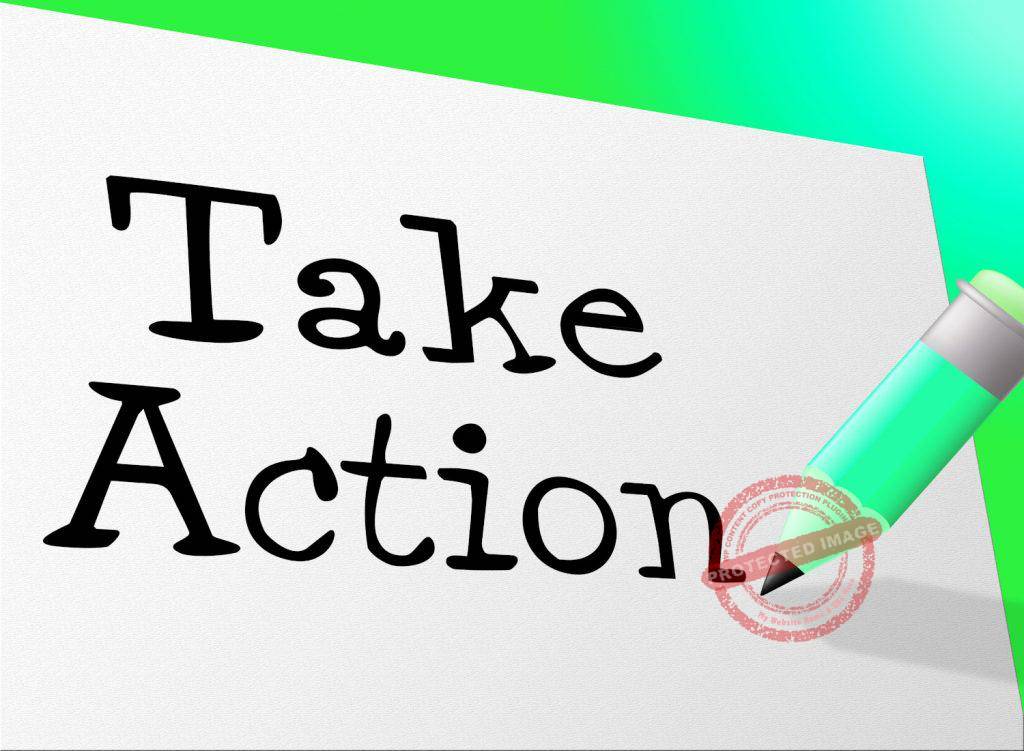
Another thing you could do in response to criticisms is to take action on the positive feedback.
Are you a leader in your organization?
What have they said about your leadership qualities?
As an employee have your superiors in your workplace criticized you for your organizational skills?
It’s not just enough to see constructive criticisms as positive feedback.
You should also be willing to take those feedback as a guide to working on yourself and improving your behavior in those areas.
Thus, helping you handle and respond to criticisms positively.
Ignore Destructive Criticisms

Some criticisms would ruin your self-confidence.
Destructive criticisms are mean-spirited comments.
They leave you questioning your capabilities generally as an individual.
More so, they’ll fill you with all sorts of negative and depressing thoughts.
Thus making you unproductive in what you do and tampering with your mental health.
These are the kind of destructive criticisms that you should ignore.
Some people are naturally toxic and take pleasure in saying mean things to people just to hurt their self-esteem.
You should learn to avoid such people and ignore every negative comment from them.
This is because such comments would do you more harm than good.
Even more, develop a thick skin to their comments (by this we mean mental toughness).
This is so that their negative comments don’t get to you and affect you mentally or emotionally.
Consequently, helping you not to take their criticisms seriously nor respond to it.
Respond Intelligently And Proactively

Another way to respond to criticism is to respond proactively and intelligently.
There are certain responses you could throw at a critic that would help make things better between you and the critic.
Bear in mind that these are not rude responses that would make things worse or lead to heated emotions.
Rather, these are diplomatic responses that would help to make the critic see the need not to criticize you again.
Hence, when you need to respond to criticisms, respond with phrases such as;
- “I know that I behaved as you expected of me but I will try my best to do better next time.
If the critic is your boss or a superior at work, this would let them know that you understand your actions and that you’re determined to do better.
- You could also respond thus; “I’m doing my best to improve on this area.
- Give me another chance to make things right and I won’t disappoint you.
- I’ll try my best not to make this mistake again.
This can indicate that you’re willing to improve and ready to solve any problems proactively.
If someone gives you constructive feedback and you’re unsure of what areas they need you to improve you could;
- Respond by asking in what areas do you need me to improve
- What steps can I take to be better
Overall, responding proactively is a great way to handle constructive criticisms.
Hence, when next you need to respond to criticisms, respond proactively, and intelligently.
Take It Easy On Yourself
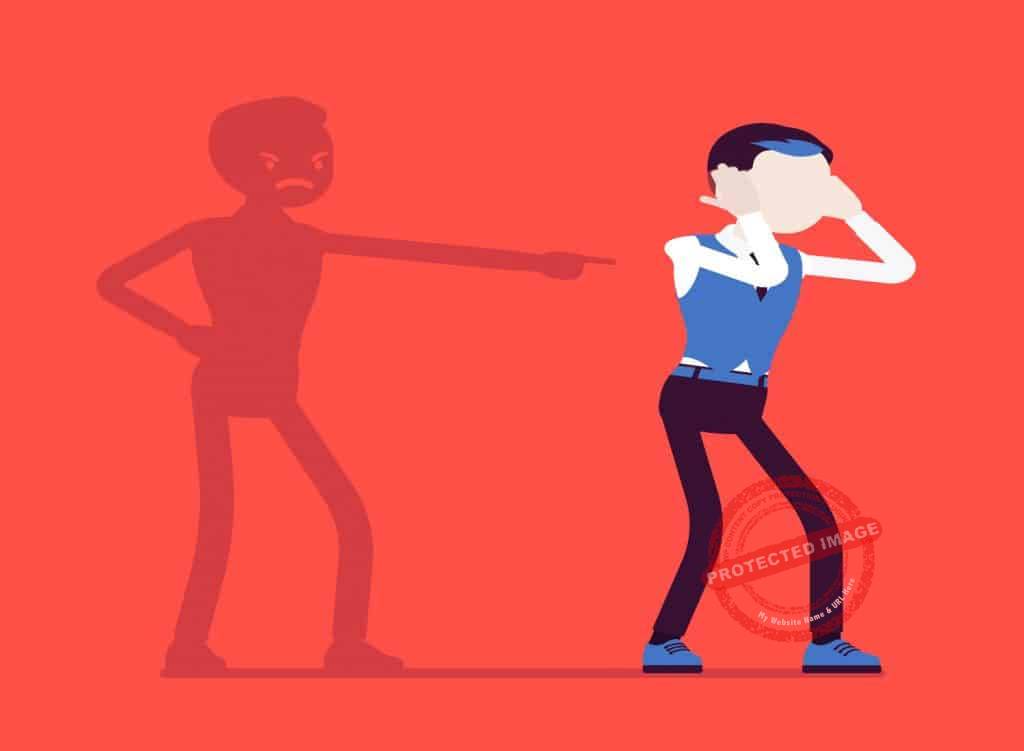
One last tip to consider when dealing with criticisms is this.
Don’t be too hard on yourself.
When it comes to responding to criticisms you need to understand that everyone makes mistakes.
Moreover, you can’t please or satisfy everyone even as much as you would want to.
Even more, some people are such that they never find anything good in what anyone does for them.
So, they always criticize people and their actions
The fact that you made a mistake in the past doesn’t mean that you’re incapable of doing something right.
When you’re being criticized, don’t respond to it by engaging in self-criticisms.
Rather than that, understand that no one is above mistakes, listen to the criticisms, learn for them, and improve yourself.
Consequently, helping you respond to criticisms positively.
Conclusion On How To Respond To Criticisms
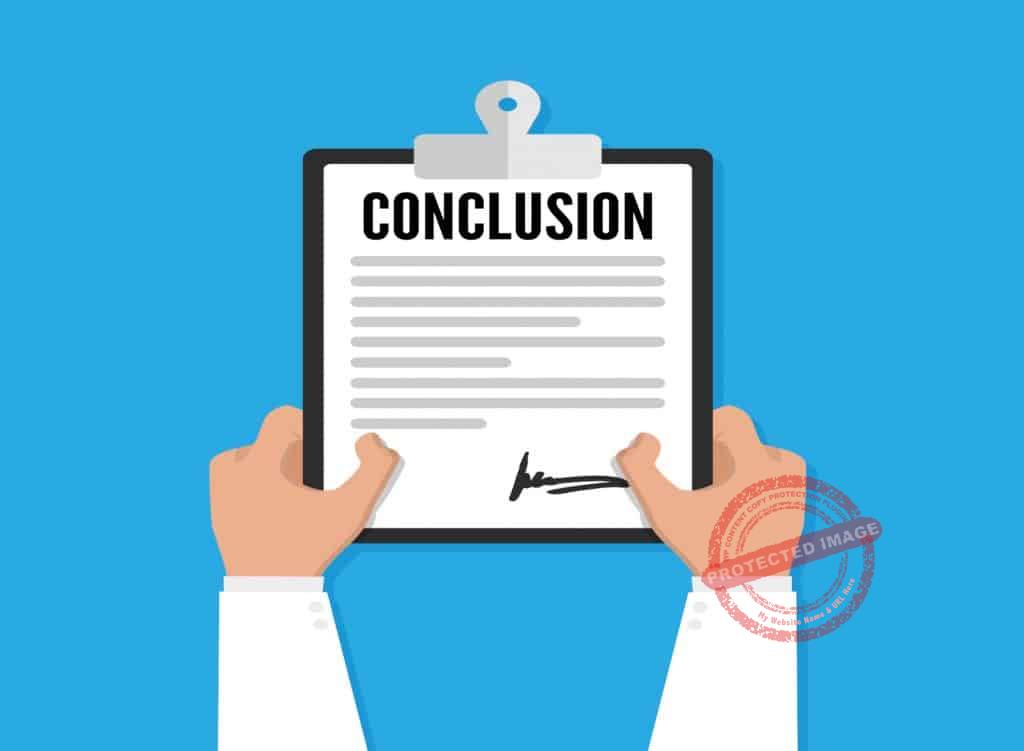
That’s it on how to respond to criticisms.
Overall, criticisms can be good for you if you learn to reframe them into more positive comments.
Knowing how to respond to criticisms is a valuable skill to have.
Criticisms are inevitable either in business, professional, and personal life
This is because you can’t make everyone happy.
People would always find flaws even in a seemingly perfect individual.
However, by learning how to respond to criticisms you can rest assured that you can cope in this critical and ever judgemental society that we find ourselves in.
Hence as an individual, be open to criticisms as they would make you a better person overall.
Thus helping you become better and achieve success in whatever you do.
Use these tips now and learn how to better respond to criticisms that might be thrown at you as you go through life.
Before you go, do you agree with the thought that criticisms are a necessary part of personal development?
Share your thoughts with us in the comments section below.
We would love to hear from you.
Click on Buy Now For A PDF Version of This Blog Post
 |
